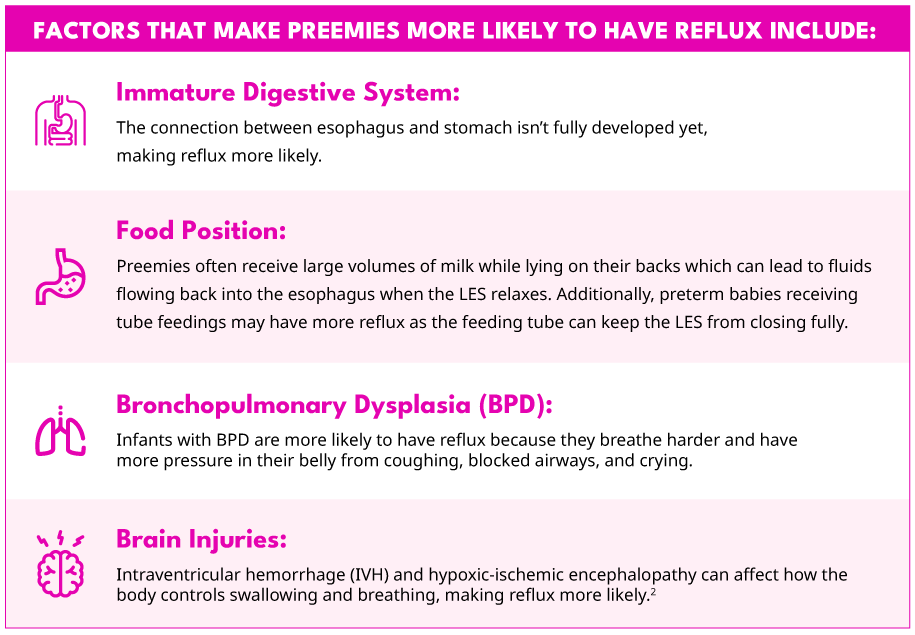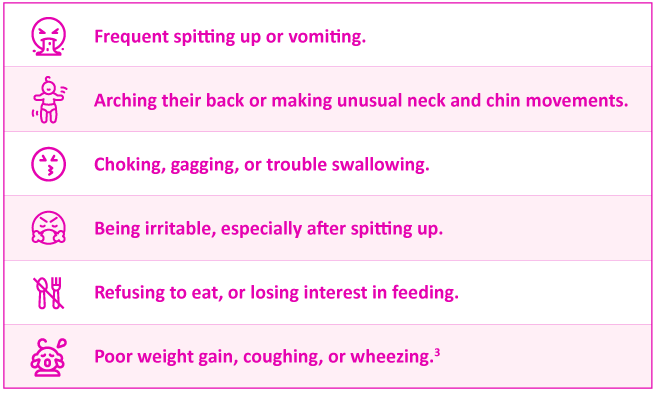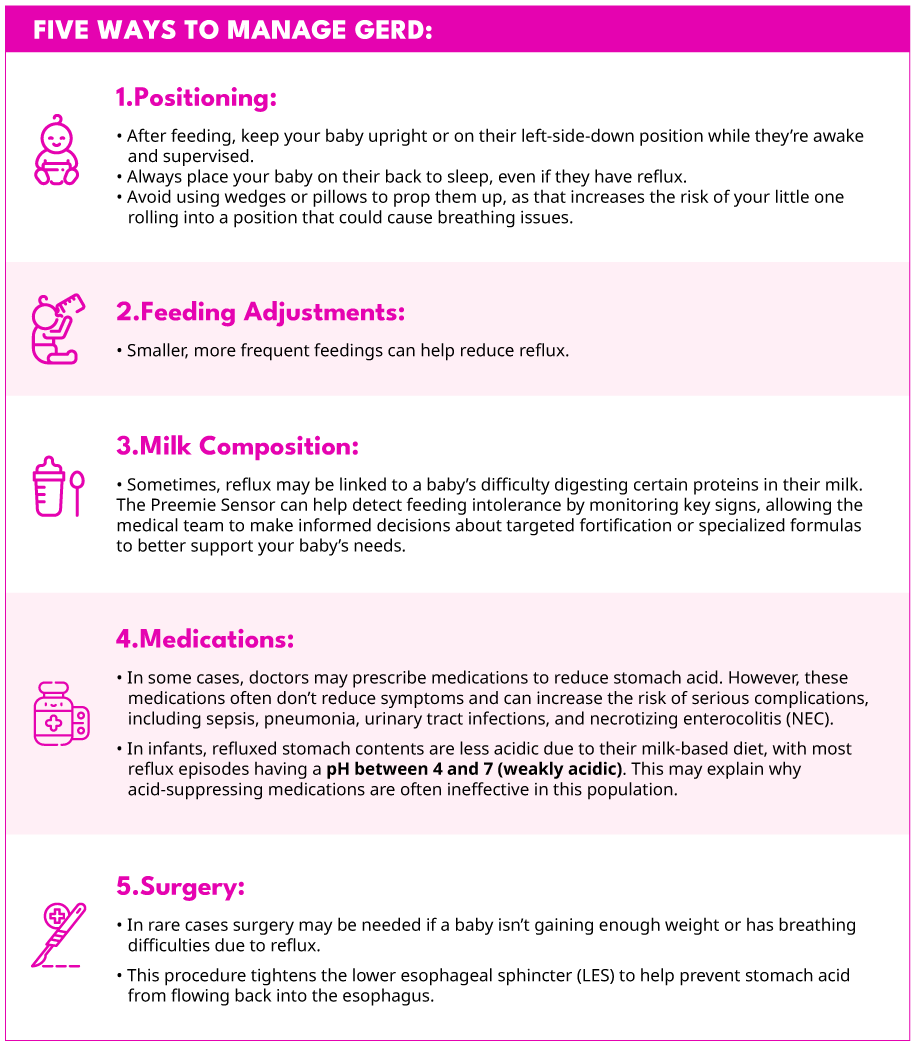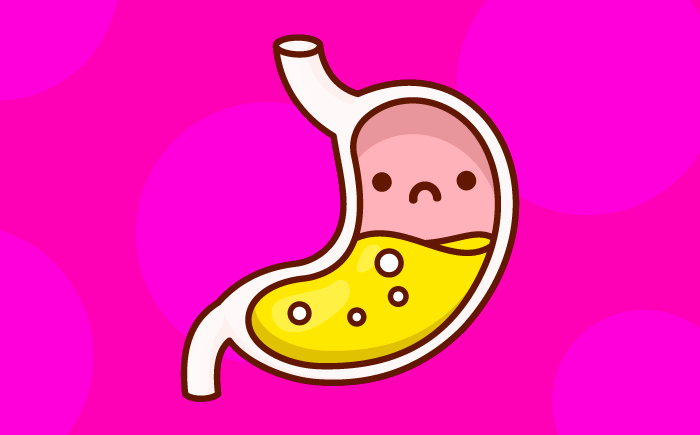Tiny Tummies & Tricky Reflux: Understanding GERD in Preemies
What is GERD?
Gastroesophageal reflux disease (GERD) happens when a baby’s stomach contents flow back up into the esophagus, the tube that carries food to the stomach.1 This is called reflux, and it’s normal for babies to have 2-3 episodes of reflux each hour.2 A little reflux is normal, but when it causes pain, feeding problems, or poor growth, it’s called GERD. About 1 in 10 NICU babies experience it, which can lead to longer hospital stays.2
Reflux happens in babies because the muscle that keeps food in the stomach (called the lower esophageal sphincter, or LES) is not functioning properly, allowing milk to flow back up. In premature babies this muscle is often weak or underdeveloped, so it doesn’t close tightly enough to keep stomach contents from flowing back up.2
Other factors that make preemies more likely to have reflux include:

What Are the Symptoms of GERD?
Babies with gastroesophageal reflux disease (GERD) may show these symptoms:

However, it’s important to know that these symptoms can also be caused by other issues. About 40% to 60% of healthy infants aged 0 to 4 months regurgitate some of their feedings.2 Additionally, studies show that less than 10% of irritability or back-arching in preemies is actually linked to reflux.4 Since many other conditions can cause similar symptoms, doctors may run tests before diagnosing GERD.3
How Is GERD Treated?
The good news? Most babies outgrow GERD as they grow! In the meantime, here are some ways to manage GERD:

As your baby grows, their reflux will likely improve. In the meantime, keeping a feeding journal, adjusting feeding techniques, and using available tools (like the Preemie Sensor to monitor feeding tolerance) can help personalize their care. Every baby is unique, waiting to be understood! Ask your medical team all the questions you need to, and explore what makes your baby’s tiny tummy happiest.
REFERENCES
- Gondim, M. M. B. B., Goulart, A. L., & Morais, M. B. (2022). Prematurity and functional gastrointestinal disorders in infancy: a cross-sectional study. Sao Paulo medical journal = Revista paulista de medicina, 140(4), 540–546. https://doi.org/10.1590/1516-3180.2021.0622.R1.29102021
- Todurkar, N. (2024, March 28). Gastro-esophageal reflux disease (GERD) in preterm neonates. Canadian Premature Babies Foundation. https://www.cpbf-fbpc.org/post/gastro-esophageal-reflux-disease-gerd-in-preterm-neonates
- National Institute of Diabetes and Digestive and Kidney Diseases. (2020, November). Symptoms & causes of GER & GERD in infants. U.S. Department of Health and Human Services. https://www.niddk.nih.gov/health-information/digestive-diseases/acid-reflux-ger-gerd-infants/symptoms-causes
- Nationwide Children’s Hospital. (2023, October 9). Study finds GERD less likely cause of fussiness in irritable infants. https://www.nationwidechildrens.org/newsroom/news-releases/2023/10/jadcherla_gerd_irritableinfant




